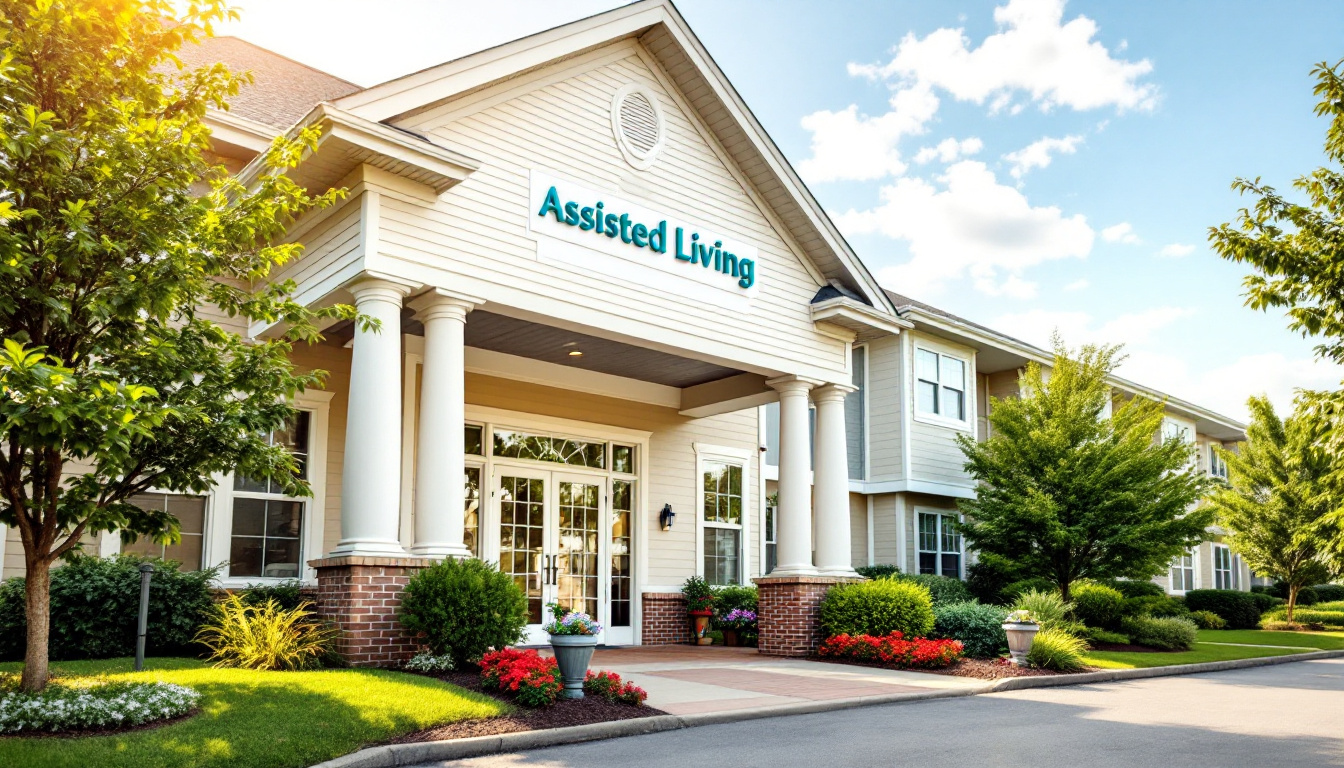Why Family Involvement is Key in Senior Care Placement Decisions
The Critical Role of Family in Shaping Senior Care Experiences

Understanding Why Family Involvement Matters
Family involvement in senior care placement decisions is increasingly recognized as a cornerstone of high-quality, personalized care. The engagement of loved ones not only guides the selection of appropriate care environments but also profoundly influences the well-being, behavioral health, and dignity of older adults. This article explores the importance of family participation, effective strategies to foster it, and the impactful outcomes that result from active involvement in the long-term care journey.
Strategies to Facilitate Family Involvement in Care Planning

What strategies can be used to facilitate family involvement in senior care planning?
Facilitating active family participation in care planning begins with establishing open and proactive communication channels. Regular updates, whether through face-to-face meetings, phone calls, or digital platforms, encourage families to stay informed and involved. Care facilities can implement scheduled care conferences to discuss progress, concerns, and adjustments needed.
Developing family-centered care practices is essential. This approach involves integrating family insights, preferences, and cultural values into daily care routines and overarching plans. When families are viewed as partners, they feel more empowered to contribute.
Involving families in decision-making processes ensures that care strategies align with the resident's values and wishes. Soliciting their feedback on care quality, daily routines, and long-term goals helps tailor interventions appropriately.
Designating a single, consistent contact person, such as a Most Responsible Family Member (MRFM), streamlines communication. This individual acts as the liaison between the family and care team, reducing confusion and ensuring concerns are addressed promptly.
Utilizing care management platforms enhances engagement. Online portals can share up-to-date care plans, send alerts about health changes, and provide educational resources. These tools foster transparency and facilitate timely communication.
Supporting family involvement extends beyond formal care planning. Encouraging participation in social activities, advocacy efforts, and policy development promotes a holistic involvement that benefits both residents and their loved ones.
Especially during transitions—such as hospital discharge or adapting to new care settings—families provide stability and reassurance. Their active role can significantly impact residents’ emotional well-being and overall care quality.
The Significance of Family in Senior Care Decision-Making

Why is family involvement important in senior care decision-making?
Family involvement plays a pivotal role in shaping the overall quality and appropriateness of care for seniors. It provides essential emotional support, acting as a source of comfort and reassurance during times of transition and ongoing care processes. Families often serve as advocates, ensuring the senior’s needs, preferences, and values are prioritized in care planning. They help navigate the complex systems of healthcare and long-term care, providing vital insights that might be overlooked by professionals.
Active engagement fosters trust and open communication between families and care providers, which is instrumental in developing personalized and holistic care plans. Especially when the senior has cognitive impairments, family input becomes even more crucial in representing the individual’s wishes and ensuring dignity is maintained.
Furthermore, family involvement enhances smoother care transitions—such as moving into a residential facility or adjusting to new health conditions—by reducing anxiety and promoting emotional well-being. Regular visits, participation in decision-making, and ongoing communication help create a familiar, supportive environment that benefits the senior’s psychological health and overall life satisfaction.
In essence, family involvement not only supports better health outcomes but also preserves the senior’s autonomy, ensuring that care is aligned with their desires and lifestyle, which ultimately contributes to a higher quality of life.
Research Evidence Supporting Family Participation

What research supports the importance of family participation in senior care?
Research shows that family involvement plays a significant role in improving the overall well-being of seniors in long-term care settings. Active engagement from family members is linked to better mental, emotional, and physical health outcomes. For example, residents who receive frequent visits often report higher satisfaction with life and experience less loneliness and depression.
Studies also emphasize that family participation helps in making informed decisions about care, medication management, and adherence to treatment plans. When families are involved, they can advocate effectively for their loved ones, ensuring their needs and preferences are prioritized.
Qualitative research highlights the vital assistance provided by families, including help with daily activities, emotional support, and fostering community ties. This involvement can promote cognitive health by encouraging mental stimulation through conversations, music, storytelling, and engagement in activities.
Furthermore, engaging families in care planning supports the development of personalized, holistic care approaches. These approaches consider the resident’s background, routines, and life goals, leading to better health outcomes.
Overall, evidence consistently underscores that integrating family participation supports the emotional well-being, safety, and quality of life of seniors, making it an essential component of effective care.
| Aspect | Impact | Supporting Findings |
|---|---|---|
| Mental health | Reduced loneliness, depression | Residents with family visits show improved mood |
| Physical health | Better adherence to treatments | Family involvement boosts compliance and health monitoring |
| Cognitive health | Preservation of memory and skills | Engagement and stimulation through family activities |
| Decision-making | Better alignment with resident wishes | Families advocate and inform care plans |
| Social engagement | Increased participation in activities | Families facilitate social inclusion |
How can families be involved in decision-making for seniors with dementia?
Involving families in decision-making for those with dementia encompasses several crucial strategies. First, families should actively participate in care planning discussions, helping tailor support to the individual's unique needs and preferences.
Since many individuals with mild to moderate dementia can still communicate their values and choices, families can assist in interpreting these wishes and advocating on their behalf. This may involve discussing future care options, including living arrangements, medical treatments, or end-of-life preferences.
Healthcare providers play a vital role by fostering collaborative relationships, utilizing effective communication methods that accommodate cognitive limitations. Decision-making tools such as advance directives and personal history documentation can help clarify the senior’s desires.
Flexible family involvement is essential—ongoing conversations allow adjustments as the disease progresses. Supporting autonomy as much as possible, while ensuring safety and quality, maintains dignity and respects the senior’s life goals.
Ultimately, engaging families in dementia care decisions involves reciprocal trust, clear communication, and shared understanding. These collaborative efforts lead to more person-centered, respectful care aligned with the senior’s values.
| Strategy | Purpose | Benefits |
|---|---|---|
| Care planning participation | Personalizes support | Ensures preferences are honored |
| Advocacy | Protects rights | Promotes dignity and respect |
| Use of decision tools | Clarifies wishes | Facilitates informed choices |
| Continuous communication | Adapts to disease progression | Maintains trust and autonomy |
Family involvement in senior care is vital. It improves health outcomes, ensures personalized care, and maintains the dignity of residents. Emphasizing open dialogue, mutual trust, and shared decision-making supports a holistic, person-centered approach essential for quality long-term care.
Impacts of Family Engagement During COVID-19 and Future Directions
How did COVID-19 restrictions impact family involvement and resident well-being?
The COVID-19 pandemic prompted strict visitation bans in residential long-term care (RLTC) settings, leading to significant disruptions in normal family involvement. These restrictions caused social deprivation among residents, many of whom depend heavily on family visits for emotional support and psychosocial stability. Especially vulnerable residents with dementia experienced heightened feelings of isolation, which negatively affected their mental health and overall well-being.
This period shed light on the essential role families play beyond instrumental care, emphasizing their contribution to maintaining residents’ identity, happiness, and social connectedness. The enforced separation brought about considerable stress for families, who faced anxieties about their loved ones’ safety and emotional state. It also revealed organizational gaps in communication and crisis management, underscoring the need to develop resilient family-involvement models that can adapt during emergencies.
Ultimately, the pandemic highlighted the importance of balancing safety protocols with the social and emotional needs of residents. It spurred initiatives to reimagine family involvement, including innovative policies for safe visitation, virtual engagement, and more inclusive governance to ensure residents maintain vital connections despite crises.
What are emerging approaches to enhance family involvement post-pandemic?
Post-pandemic recovery efforts are focusing on creating flexible, technology-enabled, and policy-supported avenues for family participation. These include adopting digital communication platforms such as video calls and online portals that facilitate real-time updates and enables families to stay connected with residents and staff.
Facilities are also incorporating families into governance structures, giving them a voice in policy-making and care standards. This participatory approach fosters trust, emphasizes transparency, and aligns care practices with family preferences. policy development involves family input to shape future safety measures, visitation protocols, and care strategies designed to keep residents emotionally engaged without compromising safety.
Further, targeted family involvement programs and interventions aim to strengthen communication channels, improve staff-family relationships, and promote shared decision-making. Training staff for family-centered care and ethical engagement strategies have also gained importance. These efforts collectively help rebuild trust, ensure ongoing emotional support, and cultivate resilient systems capable of withstanding future crises.
What is the significance of trust and communication for effective family involvement?
Trust and communication stand at the core of productive family-staff relationships, directly impacting the quality of resident care. Trusted relationships are built over time through consistent, honest, and transparent interactions. Families assess staff competence, organizational transparency, and good will, which form the basis for ongoing engagement.
Effective communication includes timely updates, clear explanations, and active listening, reducing families’ anxieties and empowering them to participate confidently in caregiving decisions. When families feel heard and respected, they are more willing to collaborate actively, advocate appropriately, and share valuable insights about the residents’ histories and preferences.
Organizational factors such as staffing levels, continuity of care, and ethical practices influence trust levels. Poor communication or organizational deficiencies can erode trust, leading to disengagement or conflicts. Strengthening trust involves continuous dialogue, transparency about policies, and emotional support, fostering an environment where families and staff can work together effectively.
In summary, trust and communication are vital for engaging families as active partners, which ultimately benefits residents’ care outcomes, dignity, and overall quality of life.
Fostering Family-Centered Care for Better Outcomes
Incorporating and supporting family involvement in senior care placement decisions and ongoing care processes is vital for delivering personalized, respectful, and effective care. From strategic communication and collaborative decision-making to embracing innovative models post-pandemic, fostering strong family relationships enhances seniors’ quality of life. Recognizing the complexities and benefits of family engagement helps care providers and policymakers develop practices that respect elders’ dignity, uphold autonomy, and promote healthier, happier lives in their later years. Emphasizing family as partners in care is not just a moral imperative but a practical pathway to improved outcomes and satisfied families.
References
- Re-Imagining Family Involvement in Residential Long-Term Care
- Family Involvement in Residential Long-Term Care: A Synthesis and ...
- The Importance of Family Involvement in AFH Care Plans
- Family involvement in nursing homes: an interpretative synthesis of ...
- Navigating Senior Care: A Comprehensive Family Guide
- Who Holds The Authority In Assisted Living Placement?
- Why Family Involvement in Senior Care Plans Is Vital
- Family involvement with nursing homes following placement of a ...





































































































